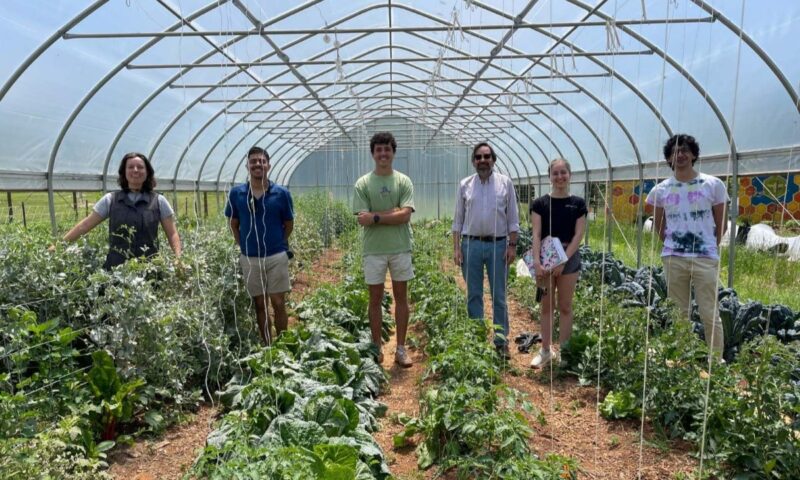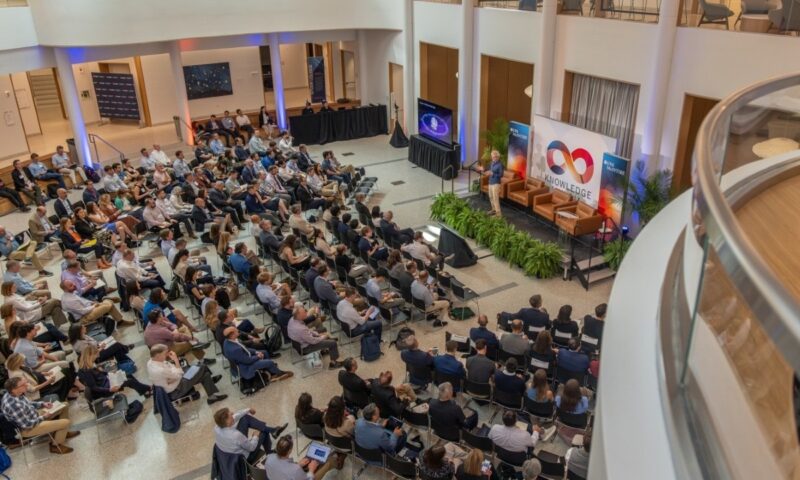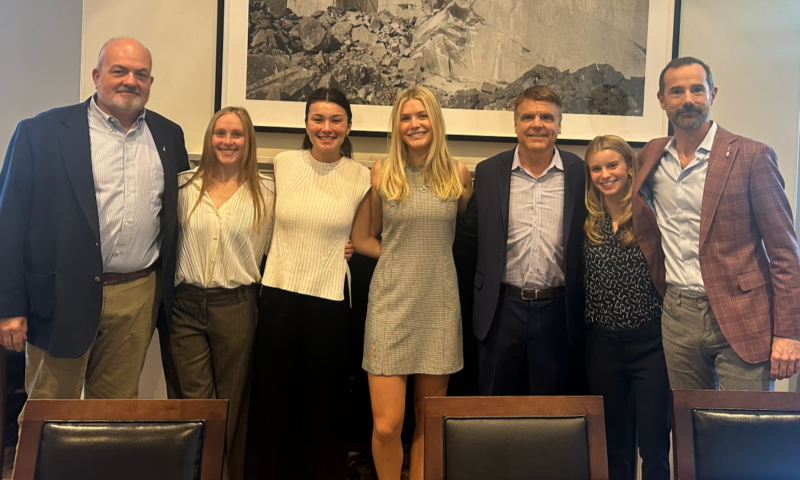As the world scrambles to enact strategies for combating climate change and putting more sustainable systems into place, those concerns have caused many to rethink what we eat and how food production impacts our planet.
According to market research firm IDTechEx, the meat industry is currently unsustainable. As reports show, roughly 77% of agricultural land is used for the housing and feeding of livestock, yet only 17% of global caloric consumption comes from animals, with 33% of the world’s protein coming from meat and dairy sources. Since the housing, feeding, and slaughter of animals that produce meat present an inefficient source of nutrition, the process requires a great deal more energy per gram to create. Considering the daunting expectations of meeting the demand of a world population estimated to swell to 10 billion by 2050, a great many problems are exposed by the mounting consumption. These issues include—but are by no means limited to—declining available agricultural lands, expanded deforestation, additional climate change threats, and health issues facing both humanity and the animals themselves.
Though it has been posited that feeding a global populace that would choose to eat an entirely plant-based diet could easily be accomplished by the food industry’s current production standards and output, people—despite the rising numbers of vegetarians and vegans—are not quite that easily convinced.
Enter Josh Tetrick’s company, Eat Just. The company’s astonishing innovations have pioneered the creation of sustainable real chicken in a way that can be carried out without ever killing a single animal. The product, known as “cultured,” “cell-grown,” or “clean meat” chicken, is already being produced for consumption. Though it is completely free of traditional meat contaminants such as salmonella, botulism, and the like, the chicken nuggets are available commercially only in Singapore, the sole nation—thus far—to allow its sale. Yet Tetrick remains optimistic; he hopes that at least half of all chicken will be similarly cell-grown in the not-too-distant future.
Tetrick, Eat Just’s Co-Founder and CEO, recently spoke with two sections of Professor Jeff Boichuk’s Marketing classes via Zoom. To prepare for the sessions, students read a case study on the company, then developed their own ideas that they then pitched to the executive for the singular experience of hearing immediate feedback from the executive. The conversations explored sustainability; delved into shifting perceptions in consuming non-traditional meat in the U.S. and across the planet; and examined some of the company’s challenges in scaling production, creating effective marketing, and changing minds to overcome legal roadblocks for selling its sustainable chicken.
Well-Prepared
“This was Josh’s fourth time speaking with McIntire students about the future of deforestation-free and slaughter-free meat,” Boichuk says. He explained that students conducted secondary market research to inform their pitches for ways Eat Just could launch their chicken nuggets product in the U.S. when the time comes.
Comm student research proved valuable for facilitating engaging discussions in the two classes Tetrick visited. Relying on insights she gathered before class, Isabelle Nguyen (McIntire ’23) offered the idea to make Eat Just’s packaging more kid-friendly, based on data showing that 70% of parents shop with their children and that the behavior of young shoppers influences what their elders buy at supermarkets. Her pitch was also economically minded, as replacing the packaging could help distinguish Eat Just from competitors while side-stepping the need to invest in costly “off-shelf” display agreements with retailers.
Connor Murphy (McIntire ’23) shared that his research suggested selling the chicken nuggets in full-service restaurants may be more acceptable to consumers, as the higher price point of the cultured meat would draw less attention or seem less costly amid the traditionally higher prices of other menu items customers expect when dining out.
As Singapore is currently the only location where Eat Just has been cleared to sell their clean meat, John Whelan (McIntire ’23) leveraged his knowledge of the country’s hawker centers (large food courts that sell foods of a wide range of culinary styles) to proffer the idea of partnering with chefs at the well-known stalls to raise the company’s profile in the territory where they already operate and to convince doubters.
Other student suggestions ranged from establishing targeted locations such as pop-up shops and specialty high-end health food stores, to forging partnerships with fast food chains, university dining service companies, and health-conscious restaurants. Ideas also delved into other product placement ideas, with a variety of packaging concepts to differentiate the product and address disparate market segments.
Tetrick was candid and gracious with the students’ pitches, absorbing the ideas and speaking with them in a collaborative way that was instructive and open.
“Josh’s feedback was enlightening, encouraging, and inspirational, as always,” Boichuk says.
Serving Hot Takes
Reflecting on the session, Libby Johnson (McIntire ’23) was surprised that in attempting to better position his business, Tetrick separated his own ethical concerns from an authentic desire to better understand what consumers want and meet those needs.
“He talked about how he doesn’t like us [society] abusing animals, but he focuses on how people care most about health. I thought that was interesting because of his own growth and learning experiences,” she says, noting how Tetrick discussed his erstwhile strictly vegan diet and recognized that his cultured meat will help move meat production toward sustainability, even if he’s not necessarily part of the target demographic.
Chris Fox (McIntire ’23) was impressed by the scale of what Eat Just is attempting to accomplish: “Personally, I thought it was kind of amazing that he’s taking on the entire chicken industry with just 200 people. I didn’t realize the operation was that small. It shows there are a lot of people who are interested in what this product has to offer, and I think it helps that he has this long-term vision.”
And despite the company operating in Singapore alone, Abiola Ogunkoya (McIntire ’23) expressed admiration for the global scope of Tetrick’s company, as well as his ability to make the most of the situation at this stage of his product’s development.
“Being an American and living here, sometimes I assume that you have to start here and become successful here and then try other places. But I liked how he realized that starting in Singapore or any other country might be better to first understand that population and then see how that experience could transfer to America.”
Direct Connections
After the two sessions, there was no shortage of enthusiasm among Boichuk’s students.
Whelan was elated that the session proved eye-opening, while liberating him to use his own foodie interests. “Getting immediate feedback from an experienced entrepreneur like Josh was awesome, and I felt like it was one of the best learning experiences I’ve had this year. Learning about Eat Just allowed me to leverage my love of the cooking world and think creatively about how they could sequence their product for long-term success.”
The third-year was also heartened by his block’s teamwork and how they worked together. “Speaking as a class about improving Eat Just’s product made me feel more like I was working in an innovative startup than a static lecture hall. My classmates are some of the smartest people I’ve ever met, and I really appreciated listening to their ideas, as they were often proposals I never would’ve thought of,” he says.
Nguyen says that the opportunity to pitch to Tetrick live—and getting to hear his immediate reactions—was an especially productive avenue for applying much of what she learned throughout the fall semester. That personal interaction brought a unique perspective to the class.
“What distinguished our class with Josh from other sessions was being able to see Josh think through our initial pitches and give us some really constructive feedback, based on Josh’s expertise in his product, his mission, and his customers. Having Josh available to respond to our ideas in real time really helped me appreciate and understand the depth and breadth of Josh’s knowledge on the topic. What’s more is that Josh really tried to walk us through his thought processes in a lot of detail, not only telling us that a certain idea wouldn’t work, but really going into the ‘why’ as well,” she says. “While the Integrated Core curriculum also incorporates many of the same application skills, having Josh on Zoom to give immediate, constructive, and detailed feedback was something that I really valued.”
Some of what Tetrick discussed with students during the sessions went far beyond the matter of marketing Eat Just’s clean meat. Lilly Cordover (McIntire ’23) was moved by his advice to students at the end of his virtual visit.
“He talked about how he used to think that you either have to do a corporate job or work at a nonprofit—that there was nothing in between these two choices. However, he told us that there is another option, which is to work for or start a business that does good for the world.” She says that the third option caused her to think about aligning her values and future career.
“Overall, it was inspiring to see the intersection of making the world a better place and conducting business,” says Cordover. “This session caused me to really think that I want to use what I learn at McIntire and beyond to change people’s lives and make the world a better place.”



